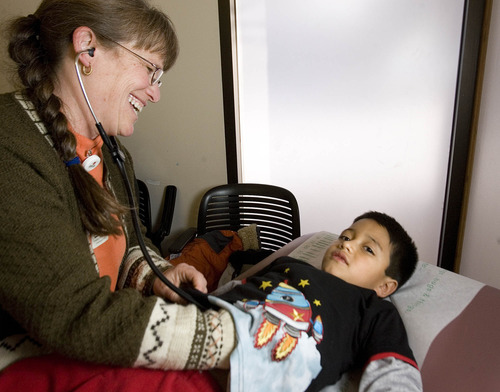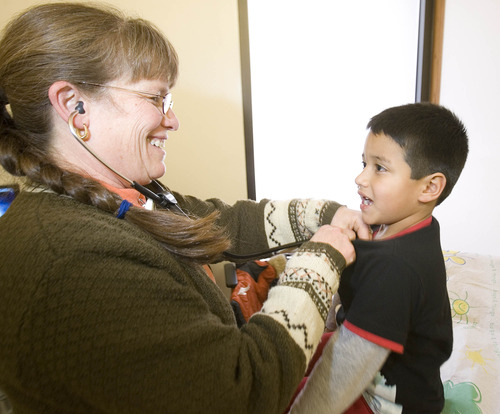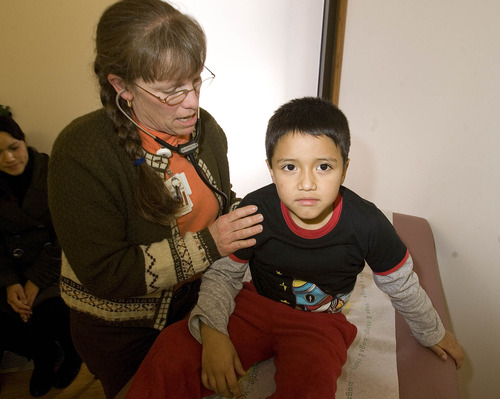This is an archived article that was published on sltrib.com in 2012, and information in the article may be outdated. It is provided only for personal research purposes and may not be reprinted.
Pediatrician Ellie Brownstein has been using respiratory inhalers to treat her asthma since she was 9 years old.
Sometimes, she'll go months without using one. But when she's sick, she might need a new one every few weeks. Now 50, she estimates she's used about 30 inhalers — and every one has gone into a landfill.
Until now.
Pharmaceutical giant GlaxoSmithKline recently launched a first-of-its-kind recycling program for respiratory inhalers called "Complete the Cycle." More than 30 Utah pharmacies have signed on, from Salt Lake City to Provo to St. George.
Inhalers cannot be reused after the medicine is gone or has become inactive, said Dan's pharmacist Chris Sheard. The inhaler, with its metal, plastic and any leftover medication, is thrown in the garbage. An option for recycling them is "definitely" going to make a difference, he said, and four of Dan's Salt Lake City pharmacies are participating.
"I think it's a great program and a good idea," Sheard said.
The pharmacies are promoting the program but are still waiting for participants. "I don't know if word's getting out," he said.
Jennifer Lewis, the program manager for "Complete the Cycle," said pharmacies can sign up online to have the recycling materials mailed to them for free. Customers can return their old inhalers when they go to their pharmacy for a refill.
Lewis said the program came about because customers asked for a way to recycle their inhalers. "It's the right thing to do for our customers, our company and the environment," she said.
Once a participating pharmacy has collected a full box of used inhalers, they mail them with prepaid shipping to a specialized recycler, Lewis said. The plastic will be used to make new household products, such as hangers or flower pots, she said. Recovered aerosol canisters will be sent to a company that will capture any remaining gas to be used for non-medicinal purposes. The metal will be used for items such as zippers and auto parts.
The inhalers will not be recycled to produce new inhalers.
"The opportunities are endless if we can help people know this is available and get our pharmacy customers to sign up to participate," said Lewis, who expects to recycle at least 100,000 inhalers in the program's first year.
She hopes the program will spur a move to recycle other medical devices that end up in landfills. "Hopefully, other companies will catch on," she said.
Brownstein, a pediatrician with University of Utah Healthcare, said the health care faces a similar challenge.
"The amount of garbage, paper, gloves, standard everyday stuff ... that's a huge amount to begin with, and then you add the medicine, the things like inhalers that just go into the garbage, too," Brownstein said.
If she had 200 patients using up inhalers each month, she said, "that's going to fill up that box pretty quick. It could have a huge impact."
While the inhaler recycling program tackles just one type of medical waste, "every little piece helps," she said. "If we all took one little step it'd be amazing how far we got." —
More information
O The Complete the Cycle Recycle Program for GlaxoSmithKline Respiratory Inhalers is available to pharmacies in 31 U.S. markets. It's free for pharmacies to participate. For more information, call the GlaxoSmithKline Customer Response Center at 1-888-825-5249, Monday-Friday between the hours of 8 a.m.-6 p.m. ET or visit http://www.GSKCompleteTheCycle.com.







